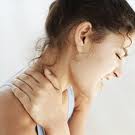 When patients undergo an acute myocardial infarction, lifestyle changes are necessary to reduce the risk of relapse. Yet research shows that women and minority patients have a more difficult time with risk factor modification efforts. A recent study published in the Journal of Women’s Health revealed that 93% of the patients examined had at least one of the five cardiac risk factors evaluated, and of that 93%, black female patients had the greatest risk factor burden of any other subgroup.
When patients undergo an acute myocardial infarction, lifestyle changes are necessary to reduce the risk of relapse. Yet research shows that women and minority patients have a more difficult time with risk factor modification efforts. A recent study published in the Journal of Women’s Health revealed that 93% of the patients examined had at least one of the five cardiac risk factors evaluated, and of that 93%, black female patients had the greatest risk factor burden of any other subgroup.
The study examined 2,369 patients who were hospitalized for acute myocardial infarction. The cardiac risk factors evaluated were hypertension, hypercholesterolemia, smoking, diabetes, and obesity. These are well established and potentially manageable risk factors that, when mitigated properly, may decrease the development of coronary heart disease, adverse cardiac events, and even mortality. Why, then, are 93% of patients showing at least one risk factor post-heart attack?
The answer may lie in the disparities in educating and discharging patients after an acute myocardial infarction episode. For instance, the research revealed that black female patients were less likely than white patients to receive lipid-lowering medications and smoking-cessation counseling, and this is merely one example of the inconsistencies associated with patient care. While this study postulates other possible reasons for the high number of at-risk patients, the purpose of the research is to help target intervention strategies to those groups most affected. Improving post-AMI preventative strategies will decrease the risk of recurrent events while improving patient health outcomes. Susan G. Kornstein, MD stated “These findings indicate missed opportunities for both prevention and management of cardiac risk factors, particularly for women and minority patients.” Perhaps with this surfacing research, patient risk factors will no longer be a “missed opportunity,” but rather a preventative priority for clinicians across the globe.
Read more about this research study here.

 A woman suffers a heart attack every 90 seconds in the United States. Yet according to a 2009 American Heart Association survey only half of women indicated they would call 9-1-1 if they thought they were having a heart attack and few were aware of the most common heart attack symptoms.
A woman suffers a heart attack every 90 seconds in the United States. Yet according to a 2009 American Heart Association survey only half of women indicated they would call 9-1-1 if they thought they were having a heart attack and few were aware of the most common heart attack symptoms.